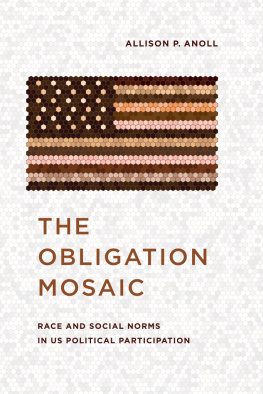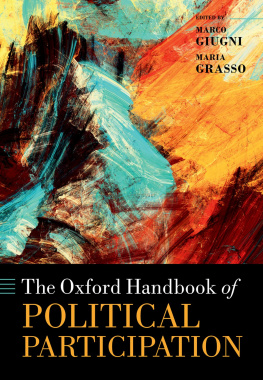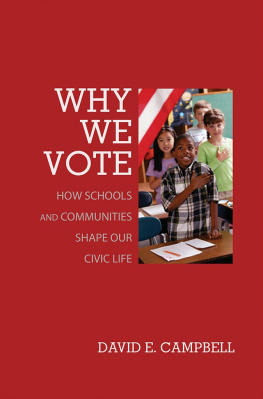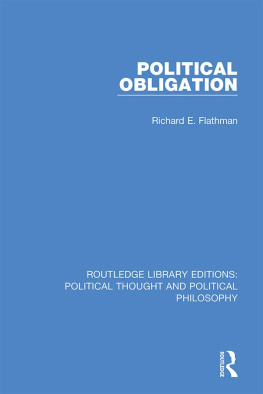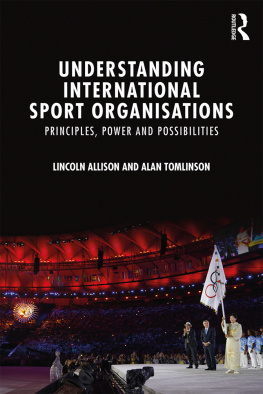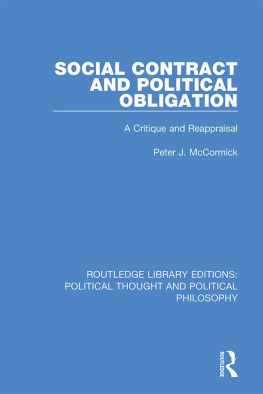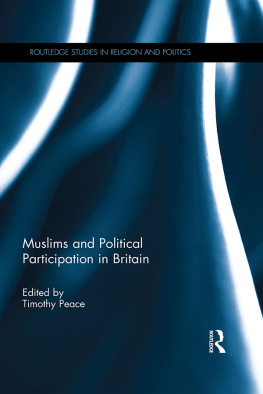The Obligation Mosaic
Chicago Studies in American Politics
A series edited by Susan Herbst, Lawrence R. Jacobs, Adam J. Berinsky, and Frances Lee; Benjamin I. Page, editor emeritus
Also in the series:
Prisms of the People: Power and Organizing in Twenty-First-Century America
by Hahrie Han, Elizabeth McKenna, and Michelle Oyakawa
The Limits of Party: Congress and Lawmaking in a Polarized Era
by James M. Curry and Frances E. Lee
Democracy Declined: The Failed Politics of Consumer Financial Protection
by Mallory E. SoRelle
Race to the Bottom: How Racial Appeals Work in American Politics
by LaFleur Stephens-Dougan
Americas Inequality Trap
by Nathan J. Kelly
Good Enough for Government Work: The Public Reputation Crisis in America (and What We Can Do to Fix It)
by Amy E. Lerman
Who Wants to Run? How the Devaluing of Political Office Drives Polarization
by Andrew B. Hall
From Politics to the Pews: How Partisanship and the Political Environment Shape Religious Identity
by Michele F. Margolis
The Increasingly United States: How and Why American Political Behavior Nationalized
by Daniel J. Hopkins
Legacies of Losing in American Politics
by Jeffrey K. Tulis and Nicole Mellow
Legislative Style
by William Bernhard and Tracy Sulkin
Why Parties Matter: Political Competition and Democracy in the American South
by John H. Aldrich and John D. Griffin
Neither Liberal nor Conservative: Ideological Innocence in the American Public
by Donald R. Kinder and Nathan P. Kalmoe
Strategic Party Government: Why Winning Trumps Ideology
by Gregory Koger and Matthew J. Lebo
Post-Racial or Most-Racial? Race and Politics in the Obama Era
by Michael Tesler
The Politics of Resentment: Rural Consciousness in Wisconsin and the Rise of Scott Walker
by Katherine J. Cramer
The Obligation Mosaic
Race and Social Norms in US Political Participation
ALLISON P. ANOLL
THE UNIVERSITY OF CHICAGO PRESS
CHICAGO & LONDON
The University of Chicago Press, Chicago 60637
The University of Chicago Press, Ltd., London
2022 by The University of Chicago
All rights reserved. No part of this book may be used or reproduced in any manner whatsoever without written permission, except in the case of brief quotations in critical articles and reviews. For more information, contact the University of Chicago Press, 1427 E. 60th St., Chicago, IL 60637.
Published 2022
Printed in the United States of America
31 30 29 28 27 26 25 24 23 22 1 2 3 4 5
ISBN -13: 978-0-226-81226-7 (cloth)
ISBN -13: 978-0-226-81257-1 (paper)
ISBN -13: 978-0-226-81243-4 (e-book)
DOI : https://doi.org/10.7208/chicago/9780226812434.001.0001
Library of Congress Cataloging-in-Publication Data
Names: Anoll, Allison P., author.
Title: The obligation mosaic : race and social norms in US political participation / Allison P. Anoll.
Other titles: Race and social norms in US political participation | Chicago studies in American politics.
Description: Chicago ; London : The University of Chicago Press, 2022. | Series: Chicago studies in American politics | Includes bibliographical references and index.
Identifiers: LCCN 2021031996 | ISBN 9780226812267 (cloth) | ISBN 9780226812571 (paperback) | ISBN 9780226812434 (ebook)
Subjects: LCSH : Political participationUnited States. | MinoritiesPolitical activityUnited States. | Social normsPolitical aspectsUnited States. | Political participationSocial aspectsUnited States.
Classification: LCC JK 1764 . A 527 2022 | DDC 323/.04208900973dc23
LC record available at https://lccn.loc.gov/2021031996

This paper meets the requirements of ANSI/NISO Z 39.48-1992 (Permanence of Paper).
Contents
An online data appendix can be accessed at https://doi.org/10.7910/DVN/MWACHB.
The Value and Meaning of Political Participation
Im here today because of the men and because of the women who were lynched, who were humiliated, who were discriminated against, who were suppressed, who were repressed, and oppressed, for equality at the polls, and I want you to know that their blood has seeped into my DNA, and I refuse to let their sacrifices be in vain....
And for anybody here who has an ancestor who didnt have the right to vote and you are choosing not to vote, wherever you are in this state, in this country, you are dishonoring your family. You are disrespecting and disregarding their legacy, their suffering and their dreams, when you dont vote. So, honor your legacy. Honor your legacy.Oprah Winfrey, rally for Stacey Abrams, November 1, 2018
In fall 2018, Oprah Winfrey arrived in Marietta, Georgia. The billionaire, producer, Presidential Medal of Freedom winner, and host of the highest-rated talk show of its kind in history was there to support Stacey Abrams, the first-ever Black woman to receive a major party gubernatorial nomination. In a nationally televised event, the two women engaged in a town hallstyle meeting that began with a nearly twenty-minute speech by Winfrey to the crowd. Her focus was on the men and women of the past who were denied and fought for the right to vote in American elections, the sacrifices they had made, and the debt we owe to them. When I go into the polls, Winfrey told the crowd, I cast a vote for my grandmother, who died in 1963 before the Voting Rights Act, and never had a chance to vote. I vote for her.
I was nearing the final stages of this book when Winfrey made her speech. In the days following the rally in Marietta, my inbox flooded with messages from friends and colleagues who had heard me talka lotin recent years about the honoring ancestors norm. Through a combination of qualitative interviews, representative surveys of the nations four largest racial groups, and a series of experiments, I was convinced that social norms about how we honor the past and help those most in need were central to understanding the participatory choices of individuals and groups in American society. Winfreys message echoed what I had heard from Americans across the country: to honor your family, your people, your ancestors, you must claim the rights those in the past fought so hard for. Anything less is a travesty.
I did not start this project with the expectation that beliefs about honoring the past and helping those in need were part and parcel of political participation. Rather, the centrality of both norms emerged during the process of grounded theory development I took in the early stages of this research. Grounded theory is an inductive research method that centers the voice of everyday people in the production of theory and knowledge. It proves most useful in two scenarios: when the researcher seeks to generate new theory and when the population under study is difficult to reach or traditionally excluded from existing bodies of work (Ackerly et al., 2018; Charmaz, 2014). In the face of these challenges, the method of grounded theory provides a flexible but rigorous framework for collecting, analyzing, and synthesizing rich qualitative data into generalizable claims. My sights were trained on interviewing racial minorities in the United States to answer two intertwined questions: Why do some individuals but not others engage in politics? And why are trends in political participation so closely tied to race? These two questions, although age old, seemed insufficiently answered to me, in part because the existing literature was built on survey data collected primarily from White Americans.
 This paper meets the requirements of ANSI/NISO Z 39.48-1992 (Permanence of Paper).
This paper meets the requirements of ANSI/NISO Z 39.48-1992 (Permanence of Paper).
